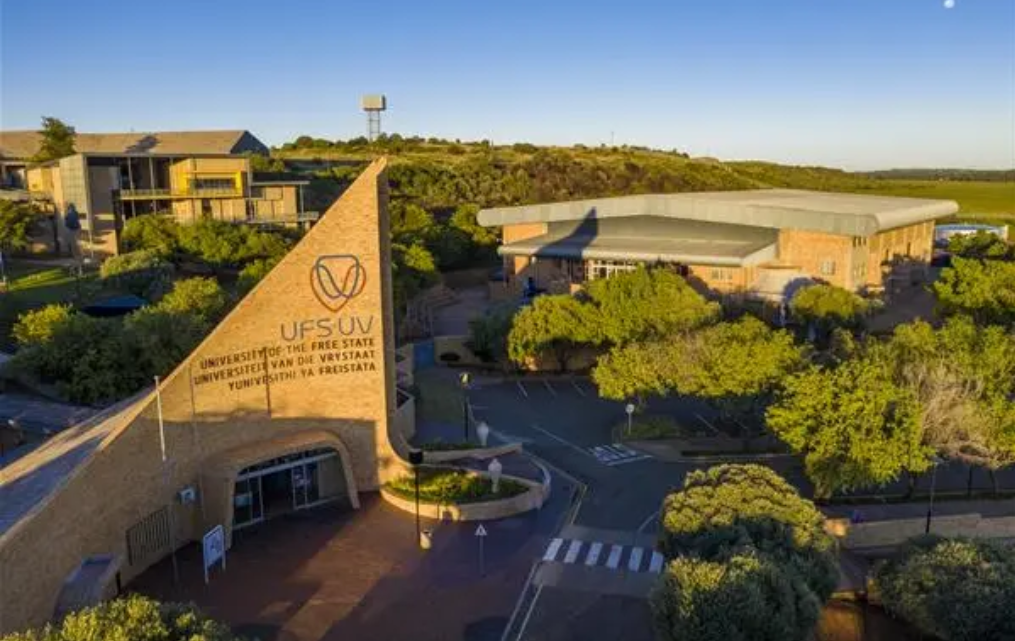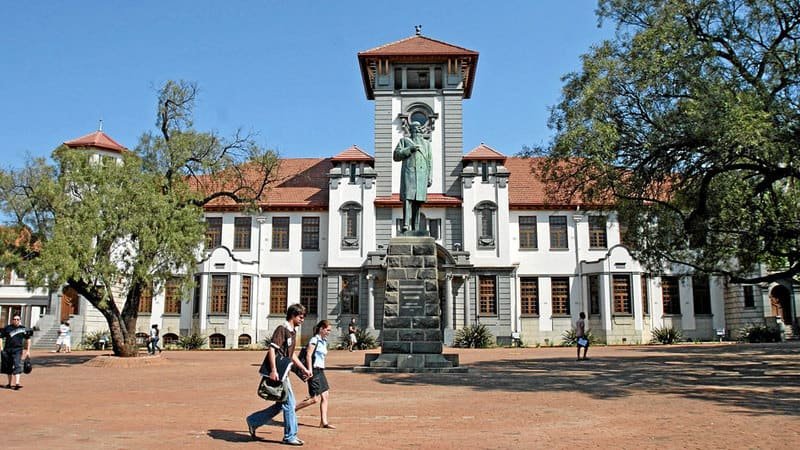The University of the Free State (UFS) stands as a beacon of academic excellence and social justice in South Africa. With a legacy that spans over a century, UFS has cultivated a reputation as a research-led, student-centered institution that is deeply engaged with its regional and global communities. Renowned for producing globally competitive graduates and pioneering research, UFS continues to make significant contributions to societal development on both a national and international scale.
About the University of Free State UFS

The University of the Free State is one of the oldest and most prestigious higher education institutions in South Africa, having been founded in 1904. The institution was established in the past as a postsecondary education hub for African students, but it has changed significantly over the years. The UFS has grown to become a renowned institution with 164 NRF-accredited researchers and 2,521 staff members. Our students have access to 671182 library books, including 14,000 ebooks, and 22 different sport disciplines.
Our ever-expanding facilities and knowledge base present numerous opportunities for scholars to make an impact both locally and globally. UFS has grown into one of the top universities in the country, housing up to 40,000 students on three campuses: Bloemfontein, Qwaqwa, and South Campus. UFS’s journey has been characterized by its dedication to striking a balance between tradition and progress in order to maintain its status as a cutting-edge, contemporary organization.
The institution maintains a South site in Bloemfontein in addition to its original location. This smaller campus provides an alternate path to higher education for gifted students who did not receive the required scores on their final examinations. We serve an expanding number of rural students from the surrounding area and other provinces at our vibrant Qwaqwa Campus in the Eastern Free State.
Future Vision and Strategic Goals
The University of the Free State is concentrating on its Vision 130 plan, which describes the institution’s objectives for the ensuing ten years. UFS wants to become even more of a market leader in higher education by 2034, placing a major focus on global involvement, societal impact, and academic achievement.
Improving the caliber of its academic offerings, increasing the volume of research it produces, and developing closer ties with both domestic and global populations are among its top aims. UFS is dedicated to carrying on its innovative and transformative history, making sure that it continues to play a significant role in the promotion of knowledge and social justice.
Read Also: UWC Mastercard Foundation Scholars Program 2025 for young Africans. (Fully Funded)
Academic Programs and Faculties

The University of the Free State (UFS) offers a diverse range of academic programs across seven faculties, each dedicated to providing high-quality education and fostering innovation. In spite of the constantly changing landscape of higher education, UFS is nevertheless dedicated to excellence and change.
Because of this commitment, the institution has been able to maintain its relevance and significantly advance society on a regional and international level. As a result, UFS has consistently improved its position in the Times Higher Education World University Rankings, now sitting between 801 and 1,000. These faculties include:
- Faculty of Economic and Management Sciences: This faculty offers programs in Accounting, Business Management, Economics, and Public Administration, among others, preparing students for leadership roles in various sectors.
- Faculty of Education: Focused on training future educators, this faculty provides degrees in areas such as Early Childhood Development, Curriculum Studies, and Educational Psychology, equipping graduates with the skills to make a difference in the education sector.
- Faculty of Health Sciences: Known for its excellence in medical education, this faculty offers programs in Medicine, Nursing, Physiotherapy, and more, with a strong emphasis on practical training and research.
- Faculty of Humanities: Offering a broad range of programs in Social Sciences, Languages, and Arts, this faculty encourages critical thinking and creativity, with degrees in Psychology, Sociology, History, and more.
- Faculty of Law: This faculty provides comprehensive legal education through its LLB and LLM programs, preparing students for careers in law, governance, and public policy.
- Faculty of Natural and Agricultural Sciences: Specializing in the sciences, this faculty offers programs in Agriculture, Chemistry, Physics, and Environmental Science, fostering research and innovation in these critical fields.
- Faculty of Theology and Religion: Offering programs that explore religious studies, ethics, and theology, this faculty prepares students for roles in religious leadership, counseling, and academia.
Each faculty offers a variety of undergraduate and postgraduate programs designed to meet the needs of a dynamic global workforce. Notable programs include the Bachelor of Accounting, Bachelor of Medicine and Surgery, and the Bachelor of Education, among others. The University of the Free State is also known for its unique offerings, such as the interdisciplinary programs in Gender and Africa Studies, which reflect its commitment to addressing contemporary societal challenges.
Read Also: University of the Western Cape (UWC)
Research and Innovation
As a research-led institution, the University of the Free State places a strong emphasis on generating impactful knowledge through innovative research. The university is home to several world-class research centers, including the Afromontane Research Unit, the Institute for Groundwater Studies, and the Centre for Gender and Africa Studies.
These centers not only contribute to the global body of knowledge but also address pressing issues within South Africa and beyond. The University of the Free State’s research efforts are further supported by its involvement in international collaborations and partnerships, which enhance the quality and reach of its scholarly work. The “entrepreneurial university” represents the next phase in the development of higher education, in which institutions are actively involved in shaping the future of business and take an increasing interest in venture formation, incubation, and risk management.
The fourth stage is the “knowledge platform university,” in which some people are currently engaged but which is still viewed by many as a “future stage.” Establishing the information markets and platforms of the knowledge society is the task of this kind of university. Consequently, the university and its constituent elements collaborate to create industry clusters and platforms, open-source platforms, creative commons, and research consortia.
Achievements in Research
The University of the Free State is steadily increasing its research output, contributing significantly to global knowledge across various fields. These research initiatives, along with many others, underscore UFS’s commitment to advancing knowledge and making a positive impact on society. The university boasts several areas of excellence, including:
- The Academy for Multilingualism, which develops innovative pedagogies to promote social justice.
- The Afromontane Research Unit, dedicated to uplifting vulnerable mountain communities through international research.
- The Boyden Observatory and Naval Hill Planetarium, which highlights South Africa’s astronomical heritage.
- The Centre for Gender and Africa Studies, which provides a multidisciplinary approach to understanding African and gender issues.
- The FARMOVS unit, known for its world-class clinical research in collaboration with international pharmaceutical clients.
Read Also: University of Cape Town (UCT)
Transformation and Inclusivity Initiatives
The University of the Free State is deeply committed to transformation and inclusivity, with a focus on creating an environment where all students and staff feel valued and supported. The university’s Integrated Transformation Plan, introduced in 2017, is a comprehensive strategy aimed at accelerating transformation across all aspects of university life.
This strategy calls for a thorough assessment of the curriculum to include a variety of viewpoints, especially those from the Global South and Africa. UFS also prioritizes the success of historically marginalized students through targeted support programs and initiatives that promote social justice and equity.
International Collaborations
The University of the Free State’s international collaborations are a key component of its academic and research excellence. The university has established partnerships with leading institutions around the world, creating opportunities for student exchanges, joint research projects, and academic collaborations. UFS attracts students and scholars from across the globe, enhancing the diversity and richness of its academic community. These international partnerships also enable UFS to contribute to global discussions on critical issues, particularly in the areas of sustainability, social justice, and public health.
Read Also: The Technische Universität Darmstadt (TU Darmstadt)
Sustainability Efforts
Sustainability is a core value at the University of the Free State, and the university has implemented a range of initiatives to reduce its environmental footprint. UFS is committed to creating green campuses through energy-efficient buildings, extensive solar energy installations, and water-saving technologies such as greywater systems and water restrainers. These efforts have already yielded significant results, with a notable decrease in energy consumption and carbon emissions. UFS’s dedication to sustainability positions it as a leader in environmental stewardship among South African higher education institutions.
Student Life and Campus Experience

The active and diverse student body at the University of the Free State provides a wide range of intellectual, social, and cultural activities. Modern lecture halls, well-stocked libraries, and cutting-edge research facilities are among the amenities available on the university’s campuses. In order to give students with the tools they need to succeed, UFS also offers a wide range of student support services, including career assistance, mental health counseling, and academic advising. In addition, UFS offers a wide range of extracurricular activities, including as student groups, sports, and the arts, to help its varied student body feel like they belong.
Bloemfontein Campus:
A key milestone in the University of the Free State’s journey was the launch of the Integrated Transformation Plan in 2017. This comprehensive strategy sought to expand and accelerate transformation efforts, including a detailed curriculum review that addressed the exclusion of certain identities and knowledge systems.
The plan incorporated perspectives from Africa and the Global South, improved student success, enhanced societal engagement, and strengthened administrative systems to support socially just processes. These initiatives underscore UFS’s commitment to being a university that prioritizes social justice, where individuals from diverse backgrounds come together with a common purpose. The university’s sustained transformation efforts laid the foundation for Vision 130, UFS’s current strategic plan focused on maximizing societal impact.
Read Also: Asia Pacific University of Technology and Innovation (APU)
South Campus:
The University of the Free State’s vision of excellence, impact, and inclusivity is reflected in its achievements across various domains:
- Student Success and Well-being: UFS stands out for its comprehensive student support strategies, which have contributed to some of the highest academic success rates in South Africa. The university offers a range of academic support programs, mental health services, and initiatives like the No Student Hungry Bursary Program to ensure students’ basic needs are met. A vibrant student life, coupled with strong safety and security measures, creates a cohesive and enriching campus environment.
- Graduate Employability: UFS enhances the employability of its graduates by integrating key graduate attributes into both curricular and co-curricular activities. This ensures students acquire the skills, knowledge, and attitudes essential for success in the global workforce. UFS’s participation in initiatives like the Siyaphumelela project and its partnership with the Michael and Susan Dell Foundation further support student success through data-driven approaches and expanded virtual services.
- Developing Young Academics: UFS is dedicated to nurturing young scholars through programs like the Prestige Scholars Program and the Transforming the Professoriate Mentoring Program. These initiatives provide comprehensive development opportunities, preparing emerging academics for leadership roles in the academic community. The university also focuses on attracting and retaining internationally recognized faculty to strengthen its global reputation.
- Sustainability Initiatives: UFS is at the forefront of sustainability, driving green campus initiatives and adopting sustainable practices in its built environment. Efforts such as constructing energy-efficient buildings, implementing solar energy projects, and introducing water-saving measures have led to significant reductions in energy consumption and carbon emissions. UFS’s commitment to sustainability sets it apart as a leader among South African universities in environmental stewardship.
- Internationalization: UFS is highly internationalized, with a strong history of global engagement. The university prioritizes staff and student diversity, attracting top talent from around the world. Using the United Nations’ Sustainable Development Goals as a guiding framework, UFS assesses and expands its global impact, ensuring that its contributions resonate on an international scale.
Qwaqwa Campus:
Building on its achievements in transformation, the University of the Free State is now focused on its Vision 130 strategy, which aims to position the university as a hub for innovation, research, and societal impact by 2034. This forward-looking strategy emphasizes academic excellence, social impact, and inclusivity, ensuring that UFS continues to inspire excellence and transform lives through quality education and meaningful contributions to society.
Read Also: Black Heart Foundation Scholarship Student Room Archives
In conclusion, the University of the Free State is more than just an academic institution; it is a catalyst for change, innovation, and progress. With a rich history, a commitment to excellence, and a forward-thinking vision, UFS is poised to continue making a significant impact on South Africa and the world. Whether you are a prospective student, a researcher, or a global partner, UFS offers a dynamic environment where you can thrive, contribute, and be part of a community that is dedicated to inspiring excellence and transforming lives.
